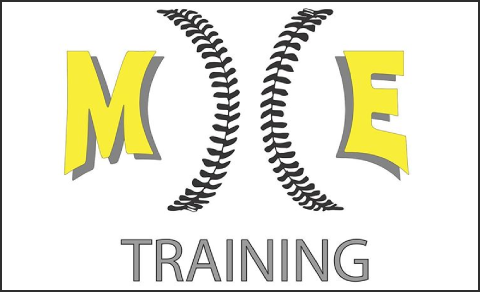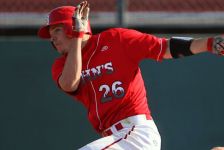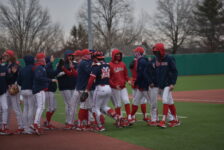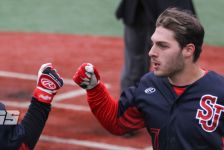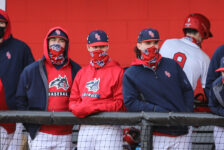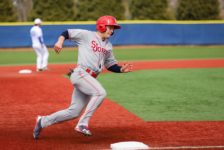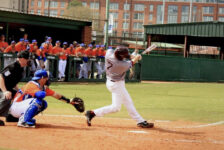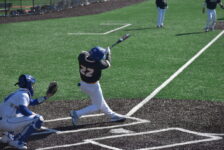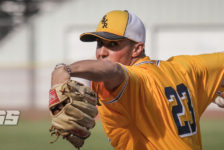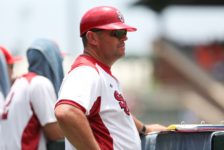(Getty Images)
In 2002, Craig Hansen set the standard for dominant pitchers on Long Island.
Simply put – he was untouchable. The Glen Cove senior captured the Diamond Award given to the best pitcher in Nassau County. He compiled an unblemished record of 7-0 with 106 strikeouts over 61 innings. He allowed just 22 hits and most incredibly – he was perfect, allowing 0 runs.

He wound up accepting a scholarship to pitch at St. John’s University for Coach Ed Blankmeyer. By his junior year, he was one of the best pitchers in the country. He established himself in the prestigious Cape Cod League with the Harwich Mariners. During that summer, he compiled 10 saves with 41 strikeouts in just 21.2 innings without allowing an earned run.
All he did was continue to dominate during his junior season thanks to his 98 MPH fastball. During his junior season he compiled 14 saves and struck out 85 batters over 64 innings with 1.68 ERA. He was named first-team All-American by Baseball America. He was drafted by the Boston Red Sox with the 26th overall pick in the 2005 MLB Draft. He was represented by Scott Boras.
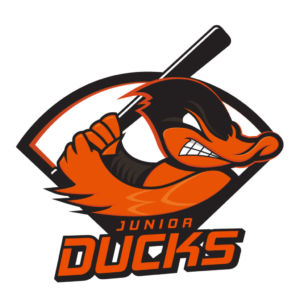
Remarkably, he debuted in the big leagues that season.
He didn’t show any signs of nerves by striking out two in a scoreless inning against the Tampa Bay Devil Rays. Unfortunately, things did not continue to progress for Hansen who struggled to the tune of a 6.63 ERA in 2006 and spent 2007 in Triple-A.
In 2008, he was traded as part of the infamous Manny-to-LA deal, which sent Jason Bay to Boston. He went to the Pittsburgh Pirates along with three other prospects.
![]()
Hansen appeared in 21 games with Pittsburgh. He was later diagnosed with sleep apnea and a rare neurological disorder called brachial plexus neuropathy which causes pain and weakness in the back and shoulders.
He briefly made a comeback with the hometown New York Mets in 2012 but was released in March 2013.
I had a chance to speak with him and here’s what he had to say…
Who were some athletes you looked up to when you were younger?
As a kid, I enjoyed watching all sports so I admired many athletes ranging from Hulk Hogan and Ultimate Warrior of the then WWF, Michael Jordan of the Chicago Bulls, Brett Favre of the Green Bay Packers, Chris Chelios of the Chicago Blackhawks to Paul O’Neill of the New York Yankees. Each one of those individuals played a role in making me the athlete that I became. Since this is a baseball piece, I will focus more on the baseball players that I looked up to. David Cone and Roger Clemens were my favorite pitchers, Frank Thomas was my favorite player but I vividly remember going to a Yankees game and watching the players warm up on the field, Paul O’Neill was having a catch on the foul line slowly moving further away from his throwing partner, he was throwing effortless lasers to his throwing partner and at that point I knew I had to make it look like that when I threw to get to the Majors, I was 13 at the time. I then started to watch how he played the game and read stories about his tenacity and how he got the nickname “Warrior” for his passion and love of the game.
Did you play multi-sports when you were younger?
I really enjoyed playing every sport and I still do. I believe that playing other sports was part of the process to becoming an athlete at the highest level possible. Playing multiple sports taught me many things that ended up improving my ability in one another, it also gave me some great memories of each weather season as being in NY we could not play baseball outside year-round. Soccer helped me understand the importance of patience and spacing, football was strength and quick thinking skills, basketball taught me teamwork and the importance of spacing (from soccer) to help your teammates find an open shot or path and then finally baseball, which taught me the importance of the ability to balance pressure and camaraderie of teammates. In baseball one cannot hide, the weakest link will always be exposed and you need to be supportive of whomever that may be. You win baseball games together.
You allowed zero runs in a high school season – was that a personal goal of yours? How did you challenge yourself when there was literally nobody that could hit you?
It definitely was not a personal goal. I really didn’t have to challenge myself as my older brother (who I had to be better than in everything), teammates and peers were the challenge to me. Growing up in Glen Cove, we had great athletes in every sport and I wasn’t the best player in any of them so the better athletes were the example of what had to be done to be better. If another pitcher is throwing long toss, well I am going to try and out-throw him. If a hitter is taking extra swings, I will take more swings. It always challenged me to do more. Glen Cove baseball league conducted a draft by the coaches each year to compile their teams. I was never the 1st pick – or top three, which didn’t upset me, it fueled me. I now had to be better than everyone else and that took time to do so. I put in the hard work to make myself better, running longer, running harder, throwing further, getting strong, watching and listening more, that all helped make me the player I was. The zero runs was all just a statistic, I just wanted to strike everyone out and show how good I have become.
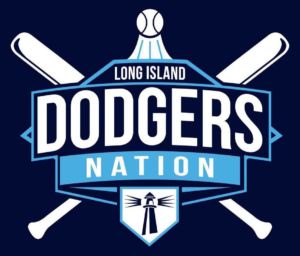
What was your college recruiting experience like? Why did you choose St. John’s and were you close to choosing somewhere else?
I only had one offer from a true baseball school so my college recruiting process was not what one would think it would be. I took some time for my talent and abilities to shine through. The choice of St. John’s was a no-brainer to me astray have the baseball history and the coaching staff to develop any player. St. John’s did not disappoint on the development aspect. The coaching staff really knew how to get the most out of each individual player and I believe that is extremely important when looking at schools.
What was your best memory of your time at St. John’s?
It is tough to choose one particular memory as there were so many. My last pitching appearance at St. John’s was very different from what I normally was doing for the team. We had just been snubbed the opportunity to host the NCAA Regionals so the committee decided to send us all the way to Oregon where we would face Virginia, Oregon State and Ohio State. Our No. 1 starter, Anthony Varvaro, was going in for Tommy John and coach Blankmeyer and pitching coach Scott Brown were in a dilemma on who to start Game 1 of the Regionals. So, we had a team meeting like we always do to prepare for our upcoming series out in Oregon, we had one week to prepare and the coaches had this one week to decide a pitching rotation that didn’t include our No. 1 starter. At the end of the meeting, I walk up to Coach Blankmeyer where he told me that “you may be getting the ball” so I told him “give me the damn ball, I’ll get us the win we need to get the ball rolling.”
I started my first game since freshman year a whole 28 months in the past. We ended up beating Virginia, 5-3, and I went seven innings. Then there was the series my junior year against our rival Notre Dame Fighting Irish which ended up being the last time I would face Notre Dame. My freshman year, the last time I started was not a great showing as I could not get out of the first inning and Notre Dame tatted me up for eight runs so I had vengeance to serve. So, in May of 2005 we had a three-game series at home with a double header on Saturday and one game Sunday. Nationally broadcasted game on ESPN (which was a first for us), we had built up a little bit of hype with the talent that we put on the field. The first game I got the save, second game I came into a tie game and held off the Fighting Irish for the win, then on Sunday I got another save. I just wanted to pitch and help the team win as much as I could.
What was draft day like? Getting picked in the first round is everyone’s dream – what was the next couple days like?
Draft day was not how I had planned it as we (St. John’s) were just eliminated from the NCAA Tournament after having an outstanding year cumulatively. But on Draft Day, my mother held a house party for family, friends and teammates. I was surrounded by loved ones that mainly consisted of Yankee and Met fans so, being drafted by the Boston Red Sox was interesting. The Yankee fans quickly turned to me to say that they will not be rooting for the Yankees when I pitch – how nice, right? The following days were long as I just wanted to get back on the field and play, but due to the contract hold up, I had to wait.
Is there anything you would’ve done differently looking back at your career?
While playing no on thinks about life after baseball, barely anyone prepares for it. In many cases, you never know when your last pitch or swing will be. When is the last time that you will be lacing up the clears to go compete? Some guys have the choice to end it on their terms, others don’t. With that being said, I would have considered the preparation of life after baseball a little more. My career was taken away with an injury and I was not ready for the transition that was taking place. The MLBPAA is a great advocate to help players in such transition that they are going to embark.
What role did you have in the playing career of your brother, Kyle?
Growing up I never had the opportunity to watch Kyle play as I was always on the road traveling somewhere for baseball. I would see video clips of him pitching in high school and at St. John’s. Then due to my injury, I was able to watch my brother pitch in person for the first time when he was attending St. John’s. It gave me chills to finally see him perform on the mound and he made me proud. He was making his own path through his game. We discussed many things during out playing careers and playing catch was always exciting as he was one of those guys that goes 100 percent from 40 feet away. I made sure to inform him of the minor leagues and who to expect of professional baseball and tell him some stories.
What is life like now for you?
I own a Property Management company that manages properties in Connecticut. I am also currently volunteering some time over at St. John’s working with George Brown (pitching coach) and his staff on the mental skills and some mechanical work. Throughout my playing time I have witnessed many things that would help improve players at many different positions and levels. Being able to watch Manny Ramirez or Big Papa prepare hitting-wise, Mike Lowell, Dustin Pedroia or Kevin Youkilis do fielding work or Curt Schilling, Josh Beckett, Jon Lester prepare for their next start. I am able to offer some insight on avenues that actually work at the next level. I will be getting back into the baseball scene as I have enough time away to realize what it has meant in life.

